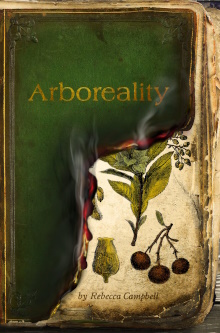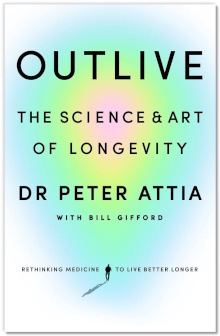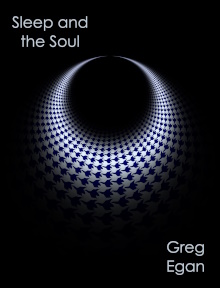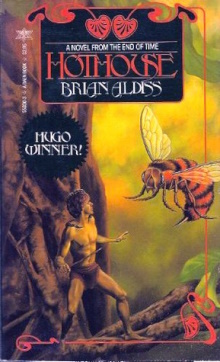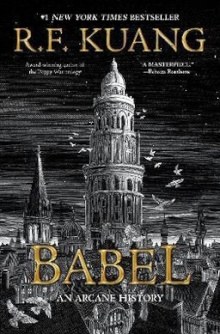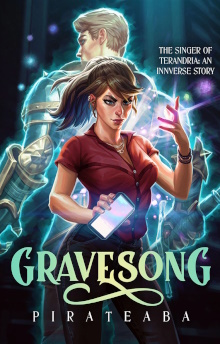Greg Bear has been one of those science-fiction greats whose work I’ve always put off reading and I felt vaguely guilty about it when he passed away in 2022. I only got around to it when I saw Blood Music being listed among the greatest novels in the genre ever written. My first impression here is that Bear certainly is an author who knows a lot about biology and even though this was written in 1985, it still feels up to date and modern. However I’m not sure I care much for the plot, such as it were. I was amused when I checked the Wikipedia entry for this book and saw someone comparing the ending to Arthur C. Clarke’s Childhood’s End because that was where my mind went to as well.
Continue reading Blood MusicCategory Archives: Books
Arboreality
After last month’s hefty non-fiction book, I thought I’d go with something lighter. It’s an expansion of an award-winning short story about climate change to novella form. Some have complained that it doesn’t add that much to the already great original story but since I’ve never read it, this works well for me. I actually think that it could stand to be expanded even more as it is set entirely in one particular part of Vancouver Island and characters appear in media res with no introduction. Since the geography and ecology of the area are so important, it was tough for someone like me who has never even been to Canada to get into. I had to read up information on the setting but it absolutely is a beautiful and moving story about the slow-moving climate catastrophe.
Continue reading ArborealityOutlive: The Science & Art of Longevity
For something a little different, this month I’ve been reading this bestselling non-fiction book about health and longevity. This book has made enough of an impact that it’s doing the rounds within the rationalist community that I frequent and my wife has been obsessed with health and fitness lately so I thought I should read this myself. It has won major kudos for being scientifically rigorous and up to date and indeed the back of the book is crammed with references. It’s probably possible to read up on all this for free elsewhere but it is valuable to have all this knowledge compiled in one place. As the book itself states however, its aim is to equip the reader with the knowledge and the tools needed to make meaningful health decisions, but as there can be no single plan that works for everyone, this book may disappoint those looking for an easily actionable list of things to do. Indeed if you’re someone in generally good health and already getting all of the fundamentals right, this book remains interesting but it doesn’t all that much.
Continue reading Outlive: The Science & Art of LongevitySleep and the Soul
Greg Egan is continuing to produce a fair amount new writing. I bought this book because it’s been a while since I last sat down with a good collection of short science-fiction stories and they’re how I first encountered Egan’s work. Unfortunately while many of the ideas in the stories here can be interesting and thought provoking, they’re also very small in scale. So small that they might rate a short blurb or a blog post but struggle under the weight and expectations of even a short story. Combined with Egan’s penchant for writing plain and straightforward stories with no dramatic twists, I’m left wondering: okay, so that happened, is that it?
Continue reading Sleep and the SoulHothouse
Saving this science-fiction classic until now was unexpectedly fortuitous because I have better idea of its influence having watched films such as Vesper and Nausicaä of the Valley of the Wind that were clearly inspired by it. Right off the bat, it blew me away with its depiction of a far future Earth in which what remains of humanity must eke out a precarious existence against the plant-life that predominates. The amoral perspective, since there is no room for anything other than survival, is sobering and this is pretty much purely a survey of the ecosystem of the era. My interest did fall off somewhat once it establishes a pattern of its characters being continually forced to confront unfamiliar environments due to a series of misadventures, rather than staying in one particular biome to explore it in-depth. But it remains one of most eye-opening and original science-fiction books I’ve ever read.
Continue reading HothouseBabel, or the Necessity of Violence
I hated The Poppy War but Babel is such a big deal in the speculative fiction genre that I feel obligated to read. Plus, I’ve had numerous people point out to me that it’s a very different book. This does actually cover some of the same ground and shares similar themes but it really is a much better book and I’d attribute that to Kuang’s writing skill having greatly improved since then. The characters this time around are much more convincing and it’s exhilarating how this is at once a love letter to Oxford and a condemnation of what the British Empire did to be able to afford to build the place. Even so, it has too many flaws for me to consider it a great book. It fails particularly towards the end as the climax is so obvious and made possible only because the great and mighty of the Empire act so dumbly.
Continue reading Babel, or the Necessity of ViolenceGravesong
As a big fan of the Wandering Inn, naturally I want to read every story written by Pirateaba that takes place in it. However the overall story now spans more than just the original web serial, encompassing a graphic novel and now this separate story published on the new Yonder platform. Many fans complained about the latter in particular and it seems that Pirateba does have some gripes about the global availability of the service. I don’t begrudge her trying to make some money off what is now an extremely popular web serial so I downloaded the app to read it. In the event, this method of monetizing web fiction is annoying but it doesn’t really cost much to read the whole thing on Yonder. What is a problem is that this is nowhere as good as the Wandering Inn itself and that makes it difficult to recommend to others.
Continue reading Gravesong
